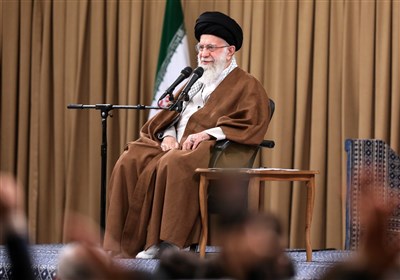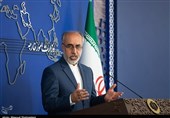London Terror Attacks Might Benefit British PM in Upcoming Vote: Analyst
TEHRAN (Tasnim) – A Scottish political analyst and university professor said the recent terrorist attacks in London might benefit the government of Prime Minister Theresa May in the wake of the upcoming UK General Elections.
“…in the past, we might have expected these attacks to benefit the government and the status quo. That did not happen after Manchester. It might after London…,” Andrew Cumbers, Professor of Political Economy at Glasgow University, told the Tasnim News Agency.
Elsewhere in the interview, he said the UK foreign policy under Labour leader Jeremy Corbyn would be “more internationalist, respectful of UN and less militaristic.”
Following is the full text of the interview.
Tasnim: As you know, Militants drove a van at high speed into pedestrians on London Bridge before stabbing Saturday night revelers on the street and in nearby bars, killing seven people and wounding more than 30. The attacks came days ahead of a June 8 election and less than two weeks after a suicide bomber killed 22 people at a pop concert in Manchester in northern England. What’s your take on the attacks? The issue of Brexit was the main reason behind the UK's snap elections. Are there any other reasons besides the Brexit for holding the elections early?
Cumbers: Apart from Brexit, social care (especially for the UK’s aging population) has been a big issue. As of course has security and terrorism given the tragic attacks in Manchester and once again London. The economy and Labour’s plans for more tax on the richest, new public ownership and an end to austerity policies have received largely favorable publicity too. Issues of leadership - with Theresa May coming under unexpected pressure and criticism while Corbyn has surprised a lot of people with his calmness and stature I think.
Tasnim: How differently would Theresa May and Jeremy Corbyn lead talks on Britain’s exit from the European Union if any of them wins the vote?
Cumbers: Brexit - for an election that was supposed to be about this, we know surprisingly little about what the two main candidate parties would actually do - I think this is because in both, their electoral coalitions are split between remain and leave EU tendencies. I think the Corbyn team might be more realistic about the need for staying in the single market than the Tories although I think the UK has a very poor bargaining position and whoever leads will be forced quickly into giving way on a lot of EU positions (e.g. migration) - which will not go down well with the large Brexit core vote of both parties. Because of the economic consequences of not having a good non-tariff deal I think the Conservative, in particular, are being deceitful with the electorate. But I think in reality the negotiations will be very similar whoever wins.
Tasnim: Do you believe that the UK foreign policy will change if Corbyn wins the elections? What if a Conservative government takes the helm of power again?
Cumbers: Foreign policy under Corbyn would be more internationalist, respectful of UN and less militaristic. The positive relationship with Saudi Arabia pursued by the current Conservative government would be the one thing where I think there would be a big change. There would also be less attempt to remain close to the US. But, unfortunately, the right wing of the Labour Party still contain a lot of Blairites who are pro-US and a more aggressive foreign policy position. But I think they are becoming marginalized.
Conservative - continue with economic austerity with a few more social policies but at the margins - Labour - more serious attempt to rebalance the economy through progressive taxation, spending on housing, infrastructure and services, canceling student debt and tuition fees. More state intervention in the economy through nationalization policies and setting up investment banks. The big issue for the UK is whether it becomes a US style lower tax low welfare state or maintains a northern European welfare state model. Labour would try to take the country back towards the latter. The Conservative I think are split between those (probably May and her closest advisers) who want a mild form of this and the Brexiteer Thatcherites who want to destroy the NHS and reduce the state - although it is much harder to do if you want to maintain an electoral base among older people who need state and welfare support more than most.
Tasnim: Dou you think that the recent terror attacks in Manchester and London would affect voters’ preferences in the upcoming elections?
Cumbers: It is really difficult to say. In the past, we might have expected these attacks to benefit the government and the status quo. That did not happen after Manchester. It might after London but I think Corbyn’s statement of a new approach to how we engage with the world and a critique of foreign military intervention has gone down better than expected beyond his cores support. The suspension of the election again tends to benefit the Conservatives because their electoral campaign and strategy have been under attack and seem divided internally before both incidents. If I was to guess, I would think that there won’t be a big effect overall. The UK is a very divided and polarised country at the moment, by age, class and geographically within its constituent nations and regions. That will not be easily resolved whatever the result of the election. And the Brexit process I suspect is about to reveal how little international status and power the UK has. A wake-up call to many of those who still like to think the UK can play a major role on the world stage.





